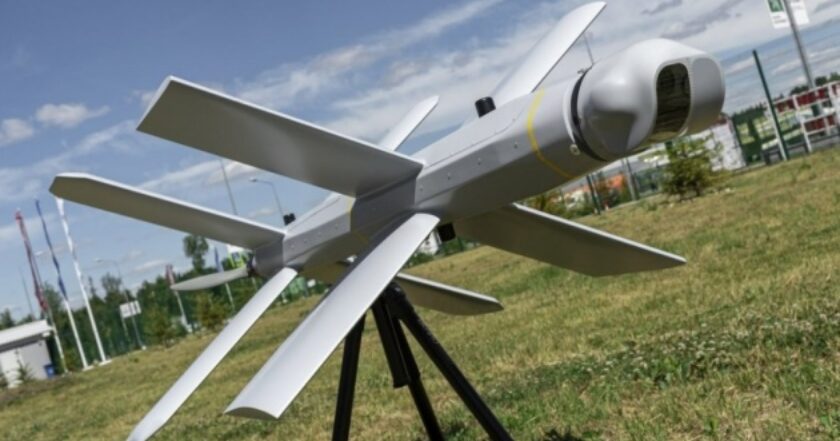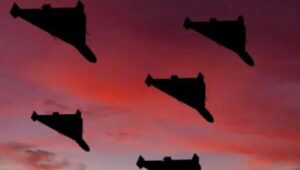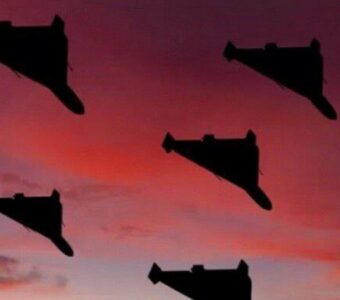Experts identify China as primary source for Russian drone components

China is the key supplier of critical components for Russian drones that the Russian Federation uses against Ukraine.
The Office of the President reports that it was established by the International Working Group on Sanctions against Russia, headed by the head of the Office of the President, Andriy Yermak, and the director of the Freeman-Spogli Institute for International Studies (FSI), Ambassador Michael McFaul.
The sanctions group recommended strengthening controls on foreign components that Russia uses in its drones after examining 174 foreign components removed from three models of UAVs used by Russian forces on the battlefield in Ukraine. The Russian army regularly uses three main models of drones: Shahed-136/131, Lancet, and Orlan-10.
Experts stress that the Russian Federation still largely relies on foreign-made components, particularly microelectronics, in manufacturing UAVs. According to an investigation by the Yermak-McFaul Group, the main supplier of critical components for Russian drones is China, which accounts for 67% of the supply, with 17% of those coming through Hong Kong.
According to the group, Türkiye and the United Arab Emirates account for 5% and 2% of the components, respectively. Components produced in Japan, the Republic of Korea, Switzerland, and other countries were also found in the drones, including processors, microcircuits, transistors, and other vital components.
At the same time, according to the International Working Group's report, many details are available through publicly available platforms, making regulatory oversight difficult. With this in mind, the group's experts urged manufacturers to do more to prevent Russia from accessing their products to circumvent economic sanctions.
"Russia is extremely active in using drones for massive attacks on infrastructural, civilian, and military objects in Ukraine, so it is very disturbing to see that important components for the production of Russian UAVs come from different states, particularly from countries that are allies of Ukraine," Yermak emphasized. "This issue requires our joint immediate response. We must take comprehensive measures to prevent the aggressor from using critical components to continue military operations on Ukrainian soil."
The group proposes to harmonize the sanctions lists between the partner countries, to unify the lists of dual-use goods based on the codes of the Harmonized System, and to expand the categories of goods subject to sanctions based on the codes of the Harmonized System.
Companies are also suggested to develop clearer instructions on compliance with the requirements of the law. Strengthening cooperation between producers and authorities is recommended to improve compliance with sanctions and implement effective restrictive measures. Experts also call on governments to investigate known companies that do not follow the specified sanctions policy.
According to experts, countries must use existing institutions and mechanisms more effectively. The group expects that applying anti-money laundering (AML) mechanisms can strengthen export control measures since the circumvention of sanctions often has similar schemes to money laundering.
The Office of the President says that applying anti-money laundering methods to export control is valuable for identifying structures in third countries that are important for producing and exporting military products to Russia, especially if the production occurs outside the coalition that imposed sanctions.
"The Yermak-McFaul Task Force report is a call to action to strengthen international cooperation. As we navigate this complex landscape, information sharing and cooperation among coalition nations becomes paramount," says Vladyslav Vlasiuk, adviser to the head of the Office of the President and secretary of the International Working Group on Sanctions against Russia. "Working together, we can effectively apply sanctions and strengthen monitoring to deter unauthorized the flow of critically important technologies."
The international working group on sanctions was created at the initiative of the President of Ukraine, Volodymyr Zelensky. It is headed by the head of Zelensky's Office, Andrii Yermak, and the director of the Freeman-Spogli Institute of International Studies (FSI), Ambassador Michael McFaul. The group includes international and Ukrainian experts, particularly the Kyiv School of Economics representatives.
Rubryka reported that Russian Ka-52 helicopters contain components from Western and Asian countries, without which they could not work.
Rubryka also reported that China supplies helicopters, drones, optical sights, and metals used in the defense industry to the Russian Federation.
Due to the growing economic problems in the country and the slow growth of the Chinese economy, US President Joe Biden called China a "ticking time bomb." However, the talks in Jeddah witnessed the deepening of differences on the issue of war between China and Russia, specialists of the Institute for the Study of War (ISW) report.



















































